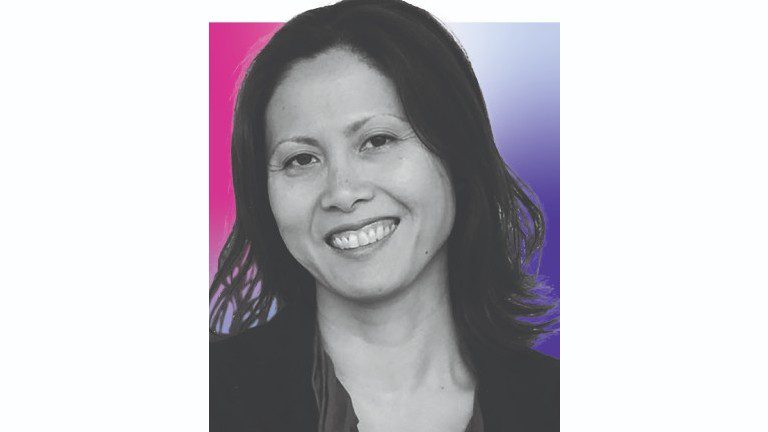
Portico Spring 2021: Robert Yuen, M.Arch/M.S. ’12, Solves Problems for Architects
As a thesis student, Robert Yuen wandered around the studio late at night with a Microsoft Kinect gaming device. No, he was not taking a study break. His thesis involved hacking the device to determine how its technology could be applied to architecture. “Graduate school was a chance to push myself,” says Yuen, M.Arch/M.S. ’12. “Michigan allows students to pursue what inspires them and see what comes out of it.”
“Seeing what comes out of it” drives Yuen’s career.
Yuen is co-founder of Monograph, a San Francisco–based technology company that he soft launched in 2017 and officially launched in 2019 with two other architects. Their flagship product is a dashboard that uses artificial intelligence and machine learning to help architecture and engineering firms track and analyze their finances and operations by combining project planning and management with time tracking, forecasting, and reporting.
Monograph spun out of the trio’s design agency, which Yuen joined shortly after they met through a mutual friend. Through the agency, they did contractual work for well-known Bay Area technology startups. They learned a lot about how they operated, where the business opportunities lay, and the relationship between business, product, and design. Yuen and his fellow partner-architects talked about how productivity in architecture has dropped over time because of the growing complexity of designing and constructing a building. They talked about how their software could help architects understand the relationship between their time and projects. “That all infused into a moment where we were sitting around the office saying, ‘How can we solve this problem,’” Yuen says.
“No one was building software for architects other than Autodesk,” he adds. “So we saw an opportunity for a scrappier, younger company because we knew there was a lot of innovation that could happen.”
They were right. Monograph has had two significant rounds of venture capital funding. The company began 2021 with eight employees and set a goal of 30 by the end of the first quarter. As they built their company, they also created a culture focused on balance and growth. In May 2020, Yuen published a piece in Fast Company about Monograph’s four-day workweek, which he says gives employees valuable time for creative thinking while recharging: “I believe the value of time and the value of improving yourself are extraordinarily important.”
That idea of improving oneself has been another hallmark of Yuen’s life; he says its origins lie in his roots as the son of immigrants. After earning his bachelor’s degree in architecture from the University of Illinois-Chicago, Yuen spent 10 months traveling around Europe and Asia on a fellowship, absorbing the breadth of architecture and landscapes; then at Michigan, he became fascinated with Rhino and Grasshopper and joined the inaugural M.S.D.M.T. cohort. Even before his thesis days, he was known as “Bobby Digital” by his classmates.
As he applied for jobs after graduation, Yuen also began building a website called Section Cut to archive architectural books, readings, and software tools. As it grew in popularity, he brought three Michigan classmates — Kyle Sturgeon, Jono Sturt, and Dan Weissman — on board, and they began offering workshops for academic institutions in addition to their expanding digital interface. Yuen left his job at an architecture firm to focus on Section Cut full time; shortly after realizing he couldn’t monetize it adequately, he met the duo that became his Monograph co-founders. “My life has been like peeling an onion; there’s another layer of interest that is starting to bear fruit,” Yuen says. “I’m grateful for the people who pushed me to shoot for the next thing that I have to reach for.”
Recently, Yuen made his first gift to Taubman College’s annual fund; he also participates in alumni panels and opportunities to connect with students. “I attribute a lot of my current success and future potential success to Michigan because it played such a big role in opening my eyes to how I see the world and understand problems,” he says. “It’s always going to be dear to my heart to support the endeavors of Taubman College.”
— Amy Spooner









